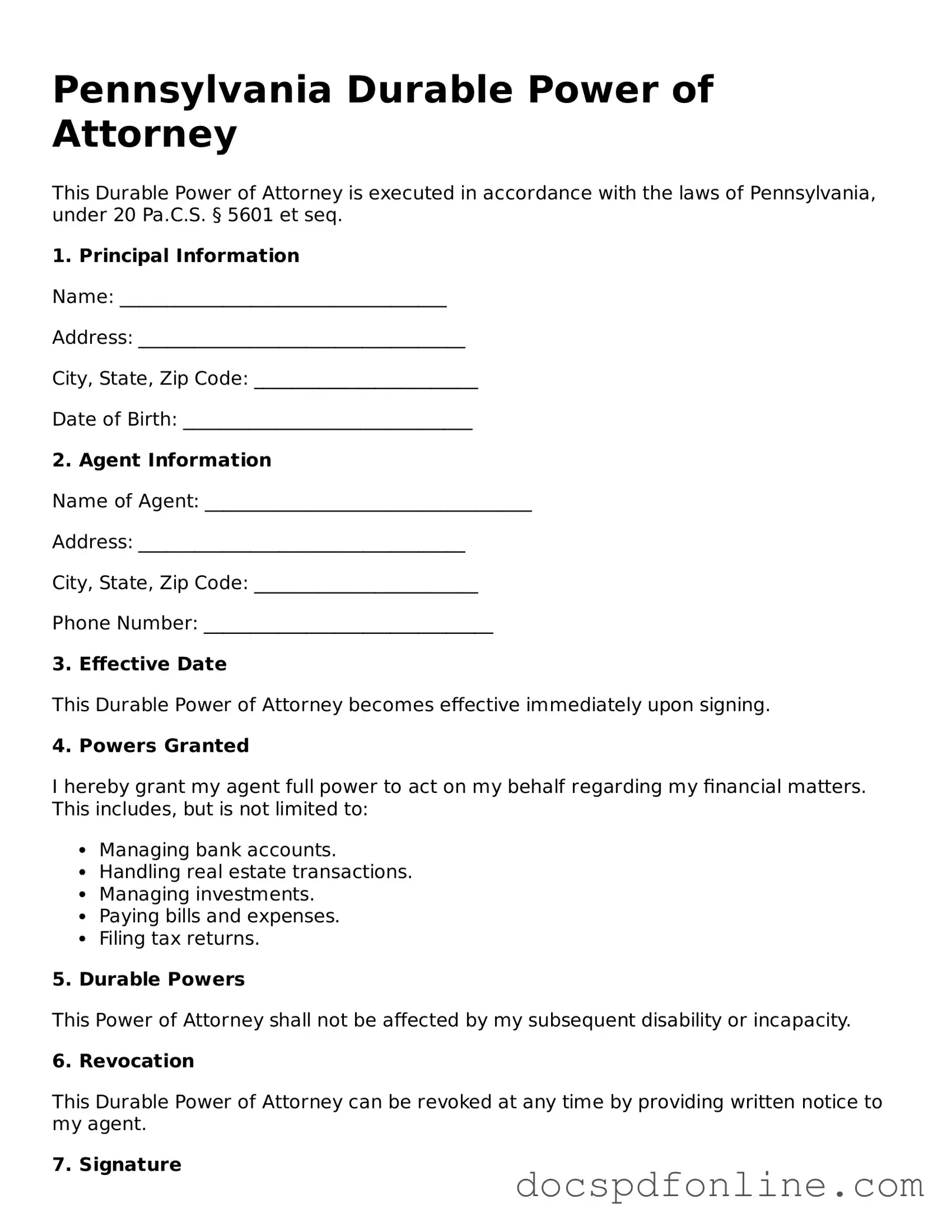Legal Durable Power of Attorney Template for Pennsylvania
A Durable Power of Attorney in Pennsylvania is a legal document that allows an individual to appoint someone else to make decisions on their behalf, especially when they become incapacitated. This form ensures that your financial and health care choices are respected, even if you cannot communicate them yourself. Understanding how to properly complete and use this form can provide peace of mind for you and your loved ones.
Launch Editor Now

Legal Durable Power of Attorney Template for Pennsylvania
Launch Editor Now
Save time — finish this form fast
Finish Durable Power of Attorney online — edit, save, download made easy.
Launch Editor Now
or
↓ PDF File
